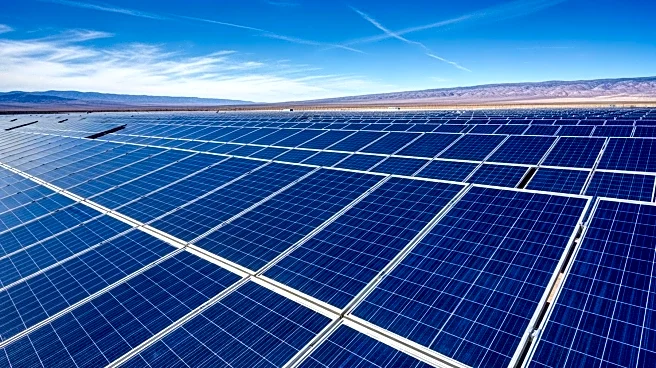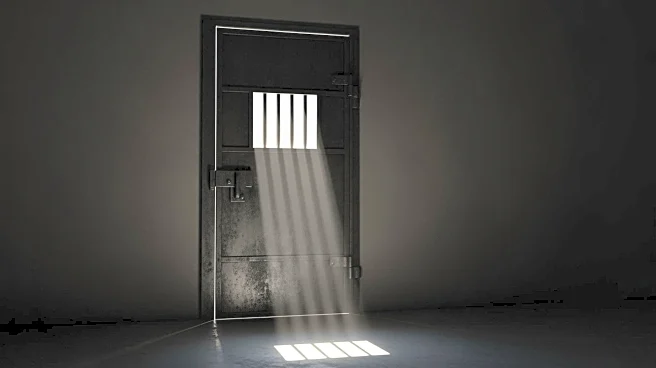What's Happening?
African leaders have pledged to significantly increase the continent's renewable energy capacity, aiming for 300 gigawatts by 2030. This commitment was made during a climate summit, highlighting Africa's vast potential for solar energy due to its deserts and warm climate. Despite possessing 60% of the world's best solar resources, Africa received only 2% of global clean energy investments in 2024. The International Renewable Energy Agency projects that by 2050, 90% of Africa's power could be generated from renewables, including solar. The KHI Solar One project in South Africa exemplifies efforts to integrate solar power into the national grid, which is currently reliant on coal-fired stations.
Why It's Important?
The expansion of solar energy in Africa is crucial for addressing the continent's electricity deficit, where 600 million people live without power. Increasing renewable energy capacity can improve access to healthcare, education, and economic growth. The commitment to solar energy also aligns with global efforts to combat climate change. Africa's slow adoption of renewables compared to developed economies underscores the need for increased investment and infrastructure development. The continent's shift towards solar energy could serve as a model for other regions facing similar challenges.
What's Next?
African countries are expected to continue developing solar projects and seek further investments to meet their renewable energy goals. The increase in solar panel imports from China indicates growing interest and potential for solar energy expansion. As more projects are rolled out, Africa could become a significant player in the global renewable energy market, attracting international partnerships and investments.








